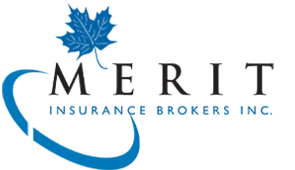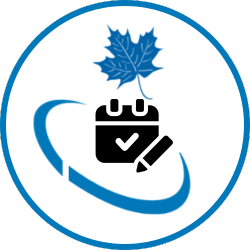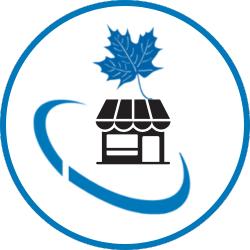Commercial Building Insurance
Commercial building and business property insurance are crucial for protecting your assets, including your building, inventory, and equipment. While these items can be replaced, it comes at a cost.
As businesses evolve beyond just physical locations, the need for comprehensive insurance remains. Whether you own, lease, or work virtually, a commercial property policy protects you from risks like fire, theft, and vandalism.
Business property insurance offers customizable options to meet your specific needs. What do you need to insure?
What Can You Insure:
- Building
- Equipment
- Inventory and supplies
- Office furniture and fixtures
- Computers and electronics
- The personal property of employees while on-site
- Customer property at your business site
- Lighting systems
- Windows
- Outdoor signs
- Fencing and landscaping
- Tools and equipment in transit or used off-site for business purposes.
As a Merit client, you’ll work directly with one dedicated person from start to finish. When you call, you’ll always speak with a real person. Insuring your business is a smart decision. Connect with one of our Business & Commercial Merit Insurance Brokers to explore the various options that can enhance your commercial property insurance policy.
ENHANCE YOUR COMMERCIAL BUILDING COVERAGE
Build up your commercial property insurance for custom protection. See enhanced coverage options:
LANDLORD INSURANCE
As a landlord, you need insurance to protect your risks, whether you’re renting out a house, condo, or Airbnb. While being a landlord can be profitable, it also comes with challenges and financial risks, so proper coverage is essential.
What is landlord insurance?
Landlord insurance provides protection against financial losses at your rental property. It typically covers the building, your owned contents, liability, and lost rental income.
Landlord Insurance covers:
- Property damage, such as walls, floors, fixtures, and furniture (if furnished), from events like fire, explosions, or wind damage, up to your coverage amount.
- Lost rental income if tenants must vacate due to a covered loss.
- Liability for injuries or property damage caused by your ownership of the property.
What’s not covered?
It doesn’t cover tenants’ belongings (furniture, electronics, etc.). Tenants need their own renter’s insurance for that.
Do tenants need insurance?
While not required by law, many landlords now ask tenants to carry insurance as part of their lease. It protects their belongings and provides liability coverage for any damage they may cause to your property.
Click here to get a Commercial Building Insurance quote or contact Merit Insurance Brokers to learn more.
FREQUENTLY ASKED QUESTIONS
What types of insurance do I need to know about for my business?
As a business owner in Ontario, you should consider obtaining insurance coverage for general liability, property damage, business interruption, and professional liability (if applicable). Depending on your industry and specific risks, you may also need to consider additional policies such as product liability, cyber liability, and directors and officers (D&O) liability insurance. It’s important to consult with an experienced insurance agent or broker to determine the appropriate coverage for your business needs.
What is co-insurance?
The co-insurance clause is a common and often misunderstood part of property insurance policies.
Co-Insurance is an agreement between YOU and the Insurance Company, whereby you agree to maintain coverage up to a stated percentage of the value of the property you wish to insure (usually 80%, 90% or 100%).
In the event of a loss, the amount of payout from the insurance company is calculated on a formula.
How to calculate co-insurance?
The simple formula for calculating the coinsurance penalty is: amount of insurance in place / Amount of insurance that should have been in place x the loss, less any deductible is the amount actually paid.
What is a certificate of insurance?
A certificate of insurance is a document that verifies the existence of an insurance policy. In Ontario, it is typically issued by an insurance company and provided to a third party as proof of insurance coverage. The certificate will include information about the insurance policy, such as the type of coverage, policy limits, and the effective dates of coverage.
What is Cyber Insurance?
Cyber insurance is a type of insurance coverage that provides protection against losses related to cyberattacks and data breaches. This insurance policy can cover costs related to notifying affected individuals, legal expenses, and costs associated with investigating and repairing damages caused by cyber incidents. Cyber insurance can also provide resources to help businesses prevent future attacks and mitigate risks. It is an important consideration for any business that handles sensitive customer or employee data or relies on technology for daily operations.
What is Identity Theft Coverage?
Identity theft coverage is a type of insurance policy that can help protect individuals from the financial and legal consequences of identity theft. It typically provides assistance with the costs associated with restoring credit and resolving fraudulent accounts, as well as reimbursement for stolen funds or expenses incurred during the recovery process.
What is a deductible?
This is the part that you pay in the event of a claim. The insurance company covers the rest, up to the $ amount of loss, or your policy’s limits whichever is less. The higher the deductible, the lower your insurance premium and vice versa.
If I cancel my policy, I won’t owe the last month’s insurance right?
If the policy is canceled by you, the calculation of the cancellation is Short Rate. The Short Rate Penalty is based on the days the policy has been in force. Depending on your payment schedule and withdrawal date, there may be an outstanding premium, which is collected after cancellation is processed. If you need to cancel it is always best to cancel the policy on the anniversary date to avoid cancellation fees.
When it comes to business insurance, what is the difference between commercial general liability and professional liability coverage?
The main difference between professional liability and commercial general liability (CGL) insurance is the type of risks that they cover. CGL covers the cost of legal and medical expenses associated with claims declaring third-party property damage or bodily injury because of your business routine.
Professional liability insurance (often referred to as errors and omissions), provides coverage for claims resulting from negligence or failure to deliver a professional service as promised, which could have led to a financial loss on your client’s behalf.















